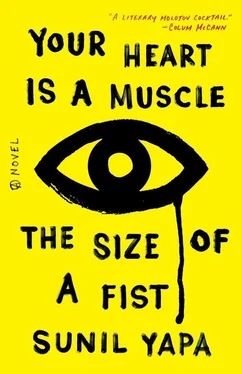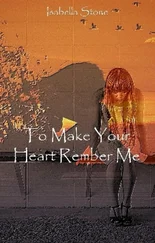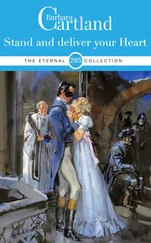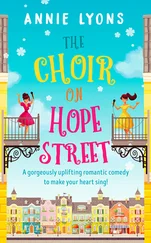Sir Teddy made a joke and Charles forced himself to laugh. Watching the casual manners of his friend, the friendliness riding softly above the authority, Charles had instantly realized his own position all these years, all those meetings with all those presidents and prime ministers. He was a small fish. A big joke. The banana-and-elephant man. What the fuck did Tony Blair care about him?
He gagged down this newly discovered knowledge with a gulp of gin and vermouth. The olive loosed from its pick, bounced its way down his throat. Coughing, coughing, coughing. Choking on his helplessness. Martin leaned over and whacked him on the back and before Charles could switch to something safer, another martini — a double — arrived in his hand as if by incantation or curse.
Something niggling at the edges of his brain, something that had more to it than his rising drunkenness, and his inability, his goddamn timidity in the face of Sir Teddy. Sitting right here and Charles had not the courage to ask him for the favor he needed. Charles found himself drifting. He found himself remembering, he could not say why, Tennyson. His dog. That stray scraggly mutt from his days at Cambridge, the scrawny mutt he had found on the street and fed and brought back to his bedsit, the dog easing his loneliness, his foreignness. He named him Tennyson, and Tennyson trusted him. Lived with him for weeks, loved to run along the river in the Backs, barking at the punting fools rowing between the locks. But what had happened to Tennyson? Charles thought of the day it was discovered he was keeping Tennyson in his room, and told in no uncertain terms that he must get rid of the dog if he was to remain in Cambridge lodgings. Well, he had nowhere else to live — impossible — and didn’t know anybody in the whole of England who might possibly take in the stray dog he so foolishly loved. He now remembered, for the first time in many years, possibly for the first time since the day itself, taking Tennyson to the shelter where a white-coated technician had rubbed Tennyson’s head and then stuck a needle in his leg and Charles holding his dog in his arms and telling him it would be all right, old Tennyson, shaggy-haired Tennyson, the light draining from his eyes, the sweet dog from the street whose head sagged in Charles’s arms while Charles stood there and told him it would be all right.
Charles pushed away his drink. He lifted his fork and picked at three asparagus spears, limp beneath a murky hollandaise. Oh, he was a coward and a fool. Even Tennyson must have known that.
“Teddy,” he said, interrupting whatever the fuck the man had been talking about, “I was supposed to meet with President Clinton.”
“Yes, I know, Charles. And as I said, he will arrive later tonight or not at all.”
“I have to have this, Teddy.”
Teddy eyeing Charles, and sipping his drink. He smiled again though his manner had utterly changed. Gone was the casual authority of a man entertaining his friends with stories of their ill-spent youth. Here sat the Director-General, the real Sir Edward Bancroft, clothed in the folded robes of his true self, all those centuries of power and wealth. Martin sat meekly beside him, quiet, it seemed, now that there seemed to be an argument brewing.
“Listen, Charles,” Teddy said, “I am not unaware of Asian history. African history. The history of colonialism throughout the world. But that’s old stuff. The millennium is upon us. You and I, we’re the positive people. The people who believe in change, in progress, in moving forward. Getting past fucking history .”
Charles clutching his steak knife beside the plate.
“We are here,” Teddy said, “to negotiate the terms of world trade. One hundred and thirty-five nations to discuss, in clear and open meetings, the rules by how we will all play the game.”
His voice took on an edge, a note of exhaustion. “Those children, out there”—he flung his arm expansively toward the room, a gesture which seemed to include in its sweep the street, the city, possibly the entire globe.
“Those children may believe different. That we are trading away democracy, the environment, labor laws. That we are starting a new American empire. For whom? Global corporations?”
He looked down at his hands, then met Charles’s eyes directly. “Can I be honest with you, Charley?”
“Please stop calling me Charley.”
That small smile appeared and disappeared.
“Dr. Wickramsinghe, I don’t mean to insult, but what do we have in Sri Lanka? We have a small island nation the size of what, Belgium, that has been at war with itself since 1983. A sixteen-year civil war which shows no sign of abating. A tiny poor nation. What do you possibly have to offer anyone besides warmed-over wage slaves and more of the same?”
“Textile factories—”
“Producing what? Undershirts and shawls? Blouses and briefs? Even if you did have a meeting today, why would it be with President Clinton? It wouldn’t be with Clinton.”
He stopped and smiled. Rolled gently back from the table in his chair. Charles realized with a shock he did not appear to be drunk in the least.
“It was never going to be with Clinton. Jesus. It would be with some mid-level bureaucrat who, despite his fifty other meetings with B-list countries today, would pretend to be interested in Sri Lanka’s tea and rubber trade. Your textiles!”
“Teddy, don’t go.”
“Our man from the Treasury, who may once have had high dreams of his own about changing the world, would probably talk about the importance of privatizing the telecom business, privatizing the water and electricity, grumble about distortions to the market, the inefficiencies of state bureaucracies.”
Charles was silent. He was afraid to even move lest Teddy leave him entirely behind. How many meetings had he had that were, in fact, exactly like this? Teddy had just described his last five years of meetings.
“And you know what, Charley? You might sign some small agreement. Big to you, of course. Giving away all your state enterprises. Selling off your water and electricity and communications. And do you know what that would be?”
Charles couldn’t possibly begin to answer. He looked at Teddy no longer eating, his chair angled toward Charles. Martin, too, no longer eating, watching the two of them in shock and disappointment.
“That, Dr. Wickramsinghe, is how you play the fucking game.”
Teddy raised his hand and motioned to a staffer who had been sitting, waiting, at another table. The young woman politely made her way to their table and bent to Sir Teddy and Teddy spoke into her ear and she nodded, looked at Charles, and then walked from the restaurant.
Teddy cleared his throat. “Listen, we support development. But there are some serious problems with the Sri Lankan way of life. I can assure you there will be no entry into the WTO for Sri Lanka, nor any free trade agreements with the U.S., unless you enact some serious reforms. Tighten your fucking belt. I believe we have made it very clear that your grossly overfunded health and education will have to go.”
Charles straightened. “The Democratic Socialist Republic of Sri Lanka,” he said, “has one of the highest literacy rates in the world. We pride ourselves on our education.”
“That is commendable.”
“We could not cut our education programs.”
“You would have to.”
“The people would not accept it.”
“Dr. Wickramsinghe,” Teddy said. He was calm and mocking and amused, his voice doing a fair imitation of Charles’s own baritone intonation. “Is the Democratic Socialist Republic of Sri Lanka a country where the economic decisions that affect the nation’s future are made by the people? ”
Читать дальше












